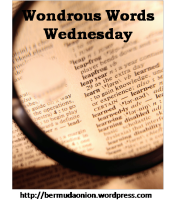 Author: Cameron Diaz and Sandra Bark
Author: Cameron Diaz and Sandra Bark
Title: The Body Book
Publisher: HarperCollins
Published: 2014 (first pub. 2013)
Genre: Non-Fiction Health
Source: Library
My Rating: 4/5
Lately I have been working a lot harder on trying to improve my health (and lose weight); for me that means reading a lot of ‘health’ books to find out what works best for me.
The Body Book is aimed at women and covers all areas of health including exercise, food and motivation. Instead of focusing on one specific diet, Cameron Diaz gives the information needed to understand why eating certain foods and doing certain exercise makes such a difference to our health.
Reading parts of this book was like going back to school. Diaz basically gives a biology lesson on how the body works – most of it I already knew but it was nice to have a reminder as it’s been a while since I learnt it. Through diagrams and charts we are not only taught the parts of the body, but why it is important to keep it healthy and how to do so. Throughout the book there are also plenty of easy to access charts which make all the information extremely clear.
One thing I loved about The Body Book was the enthusiasm with which Diaz talks about getting healthy. Despite the awful attempts at sassiness (sorry, but occasionally throwing out a ‘sister’ or ‘ladies’ only makes me cringe), I found the book extremely motivating as it got me excited about becoming healthier, especially through exercise, which is something I really appreciated. Even after finishing the book I am still feeling motivated at living a healthier lifestyle which is exactly what you want from a book like this.
The Body Book is primarily aimed at women and includes a chapter about menstruation and taking care of our lady-bits. However, for the most part I feel this book would be just as effective for men, though they will likely need to adjust some of the numbers to fit their physique.
I wasn’t expecting this to be particularly well written (though at least Diaz makes it clear she had help rather than disguising the fact that it is ghost written), but was pleasantly surprised. While it’s not incredible literature, it serves its purpose in providing a lot of information in an easy to understand format. I’m not particularly good at remember what I have read in non-fiction books, but as this book focuses more on the intent to become healthier, as well as giving specific advice, I feel much more confident in how to make choices on what I eat, etc.
I would recommend The Body Book to anyone starting to explore living a healthier life as it provides all the basic information you need to make healthier choices. It is not a dieting book, nor is it a step-by-step how-to, but rather shows how, and more importantly why, to make healthier decisions in day-to-day life.


 Title: Allegiant (Divergent series #3)
Title: Allegiant (Divergent series #3)

